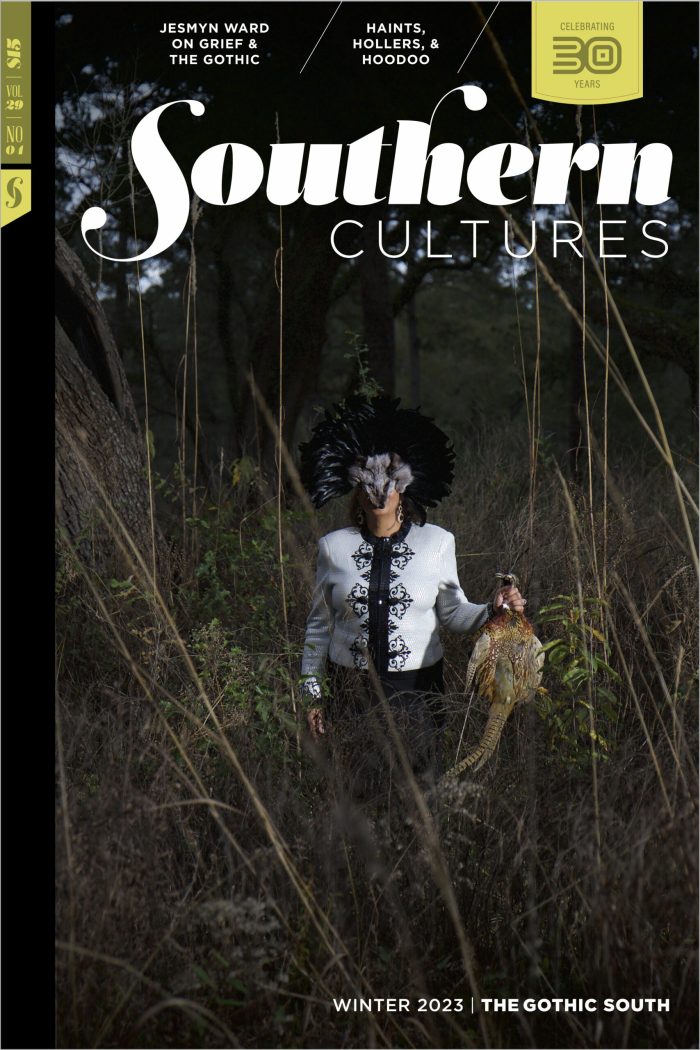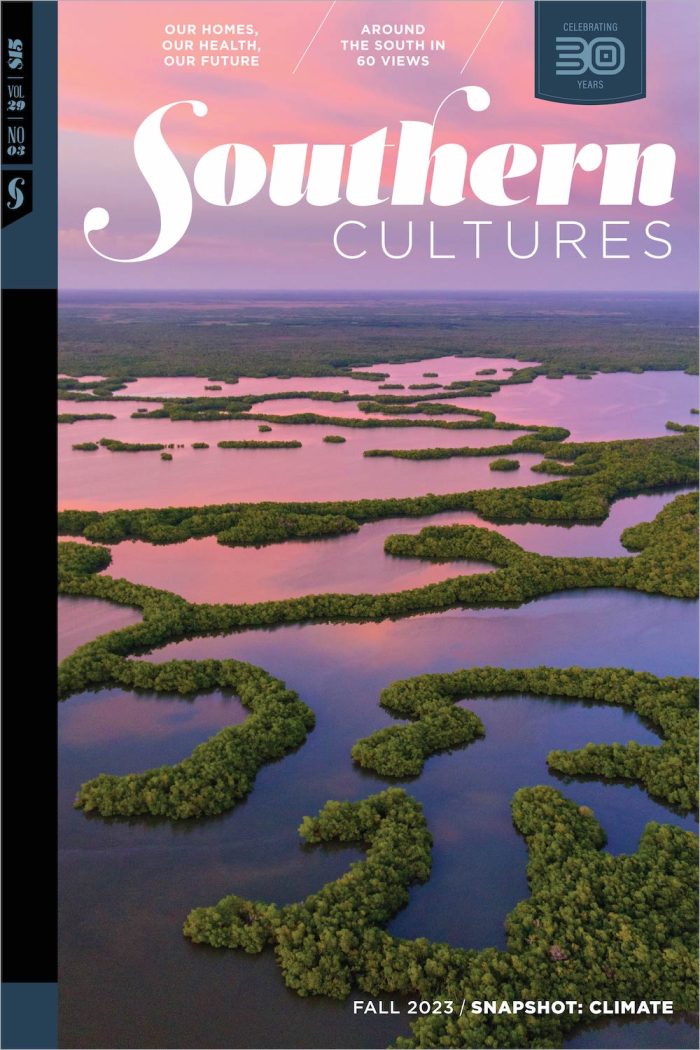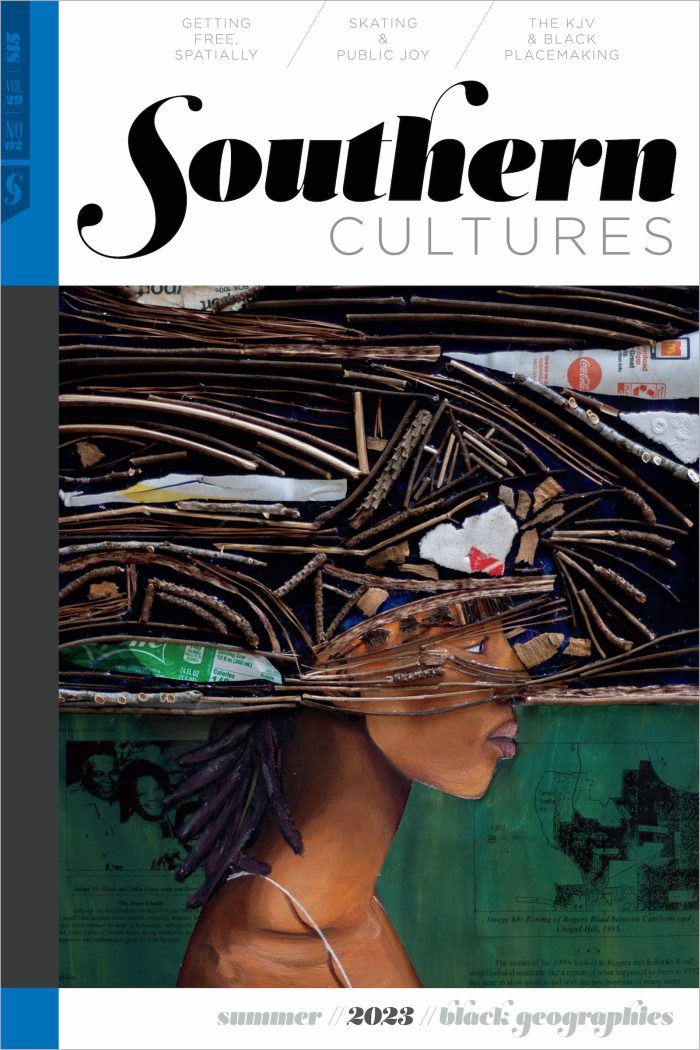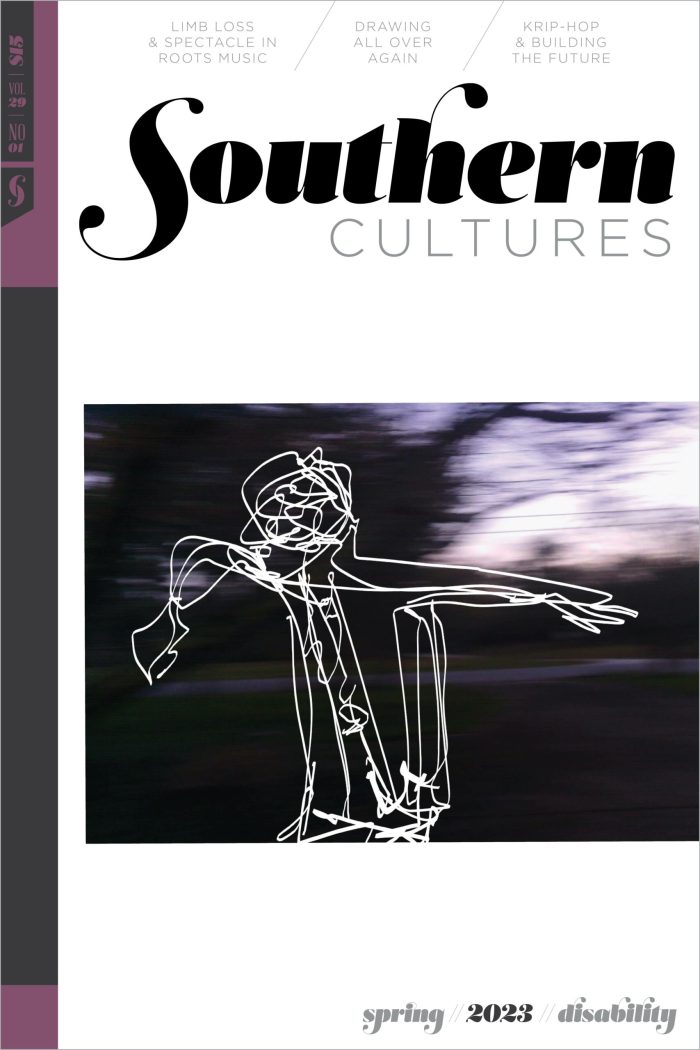Essay
by Bethany Moreton,
Pamela Voekel
“America is Mississippi,” Malcolm X asserted in 1964, as he appeared in Harlem alongside Fannie Lou Hamer. “There’s no such thing as the South—it’s America.” Over the summer and fall of 2022, as this issue of Southern Cultures took shape, Mississippi produced an extraordinary archive of moral manifestos that echoed this conflation of the state »
Essay
BUY ACCESS
by Alex Beasley
“At every turn, those of us withstanding the storm were expected to act as though what we were up against was scarcity while the evidence of our abundance was plain to see.” I have a scrap of paper I’ve kept, perhaps perversely, for over a year now. It’s an inventory of all the water I »
Essay
by Julia Ott
In the United States, why is wealth—especially financial wealth—held by white households so disproportionately and, in particular, by the most affluent ones? Racial wealth inequality is no accident of history. Rather, it is the intended result of the southern Democrats in Congress who controlled federal tax policy throughout most of the twentieth century. Beginning in »
Essay
BUY ACCESS
Writing Abundance in the Plantationocene
by Donald Mayfield Brown,
Brian Williams
“Black southern literature is one of the few places where one can find resistance and survival articulated on Black southerners’ own terms.” William Faulkner’s Absalom, Absalom! (1936) tells a history of the Deep South through the lens of an enslaver named Thomas Sutpen. Faulkner’s fictional protagonist grew up in the early 1800s as a dirt-poor »
Essay
On Pet Negroes, the Black Domestic, and the Politics of Comfort
by Jordan Taliha McDonald
In her 1943 essay for The American Mercury, “The ‘Pet Negro’ System,” writer and anthropologist Zora Neale Hurston transforms the literary genre of the journal article, discomfiting its traditionally genteel form with the exuberant and colorful rhetorical punches of the Black political pulpit. Staging a community callout embedded in southern specificity in a northern publication, »
Essay
BUY ACCESS
Mexican Migrant Routes and Economies in the US South
by Iliana Yamileth Rodriguez
“The migration practices of my family (which mirrored that of other compatriots) between Mexico, Texas, and Georgia in the 1990s illustrate the entanglement of labor and familial migrations with a regional expansion of ethnic migrant economies.” Houston, Texas, was my parents’ first home in the US South. My father was born in the Mexican state of »
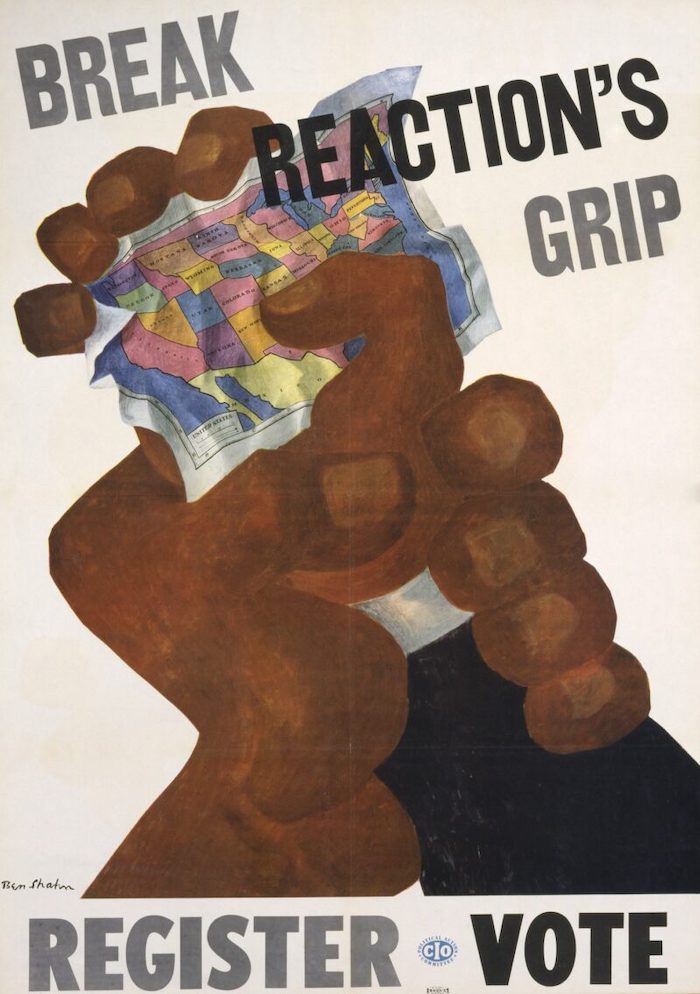 credit: Ben Shahn
credit: Ben Shahn
Essay
BUY ACCESS
Community Care and Indigenous Women’s Organizing in Mississippi
by Espiva X.,
Manuela X.,
Lorena Quiroz,
The Mississippi Freedom Writers
“When the Immigrant Alliance for Justice and Equity came along, we got the chance to work together and ensure our voices were heard, just like our precedents who fought for our freedom and our rights.” Early August in Mississippi is typically characterized by a flood of students returning to crowded hallways and heavily air-conditioned classrooms. »
Essay
by Michelle Crouch
Vidalia Mills had only been up and running for about a year when Eric Goldstein went on his quest. As soon as he’d confirmed that the demolition company was in possession of what he was looking for—that the machines hadn’t been destroyed after all—he flew from New York City to Greensboro, North Carolina, that same »
Essay
A Documentary Practice for the Climate Crisis
by Kira Akerman
Annabelle (18), Mekenzie (18), and Tanielma (17) stand at the edge of Island Road in Terrebonne Parish, the part of Louisiana’s coast that remains barely above the sea, watching as two excavators move dirt to build berms that might protect the land. When a storm blows from the west, or the east, the wind pushes »
Essay
BUY ACCESS
by Tom Rankin
“The top of it is all we can see most of the time, but any true understanding of what we’re viewing tells us there is much, much more beneath the known surface, the still waters.” In October 2016, my wife, Jill McCorkle, and I drove our Tacoma pickup filled with cases of bottled water and »
Poetry
BUY ACCESS
by Ina Cariño
there are different ways to sayscar tissue. pariah.there were plenty of us—I still feel sick when I comeeven when it’s my husband.I am called blank look. they beat us,& oftenin certain textbooksthey say the government wantedvirgins to stave off venereal disease.they gave me a modest sum.I walk with a limp.could be anyone—& I am as »
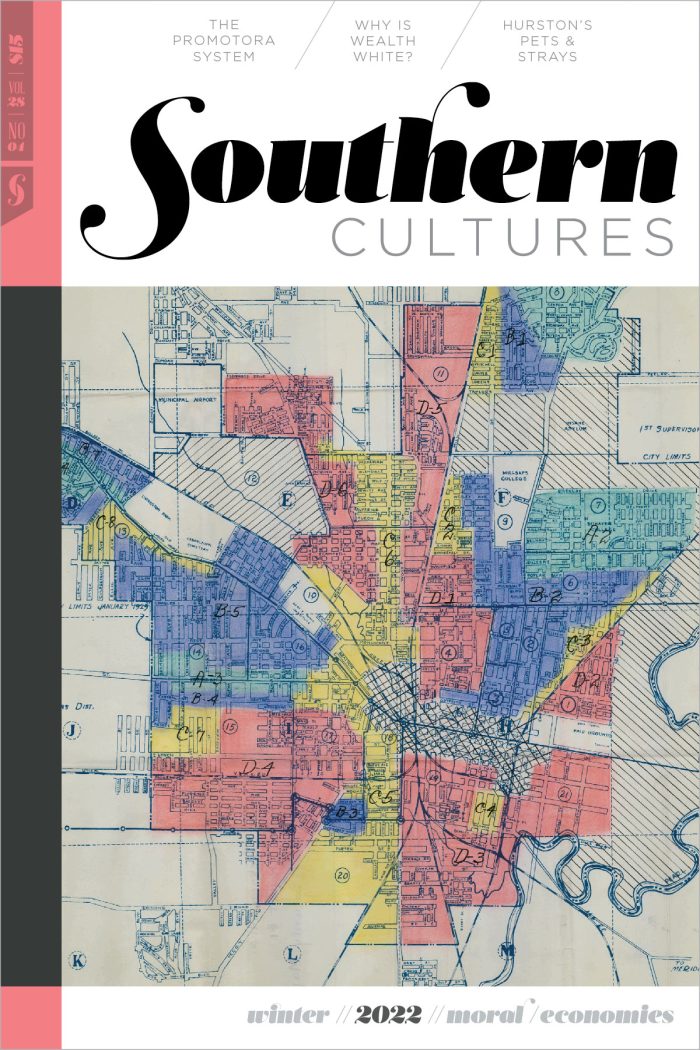

 credit: Ben Shahn
credit: Ben Shahn
